Dehydrated Skin: Causes, Symptoms, And How To Care For It
Experiencing dry, flaky, itchy skin may indicate your body needs a hydration boost.
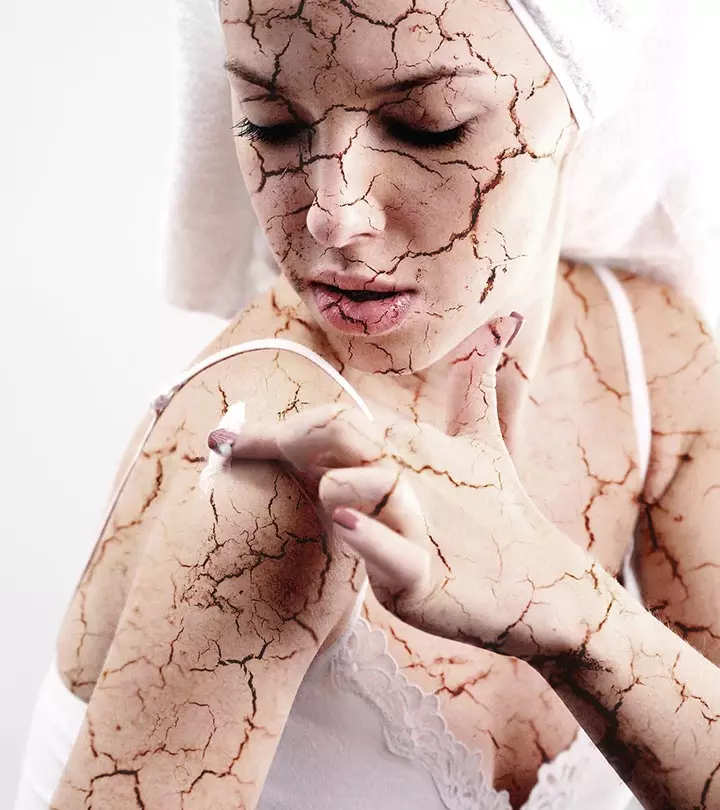
Image: Shutterstock
Dehydrated skin is among the most prevalent problems in many. But did you know that dehydrated skin is different from dry skin, as they occur due to different reasons? Dehydrated skin is caused due to a lack of moisture, and any skin type can get dehydrated. In this article, we talk about dehydrated skin, how it is different from dry skin, and other related topics. Continue reading to know more.
In This Article
What Is Dehydrated Skin?
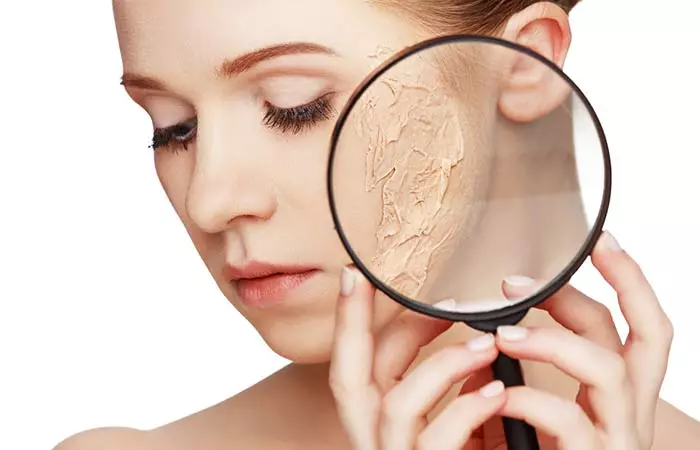
Simply put, dehydrated skin is skin that lacks moisture and is not well hydrated. It’s a myth that only dry skin is dehydrated – because all skin types can be dehydrated, including extremely oily skin.
Each of us has a different skin type – oily, normal, combination, or dry. All of us have one skin type, but it keeps changing with age, environmental conditions, and the weather. Irrespective of your skin type, your skin cells can be desperate for water. That’s when they get dehydrated. Unlike dehydrated skin, dry skin is primarily caused by underactive sebaceous glands. In other words, when your sebaceous glands don’t produce enough natural oils to maintain the moisture balance of your skin, it turns dry.
Dehydrated skin appears dry and shows all the signs that are similar to that of dry skin. But unlike dry skin, dehydrated skin can cause severe skin issues that need medical attention.
There are a few factors that differentiate dry and dehydrated skin.
Key Takeaways
- Dehydrated skin is different from dry skin and refers to a skin condition that lacks moisture.
- Any skin type can become dehydrated due to lack of adequate water or dehydrating environmental stressors.
- Replenishing your body with a sufficient amount of water can help your skin regain its natural moisture content.
- Staying away from caffeinated drinks is a way to stop your skin from getting dehydrated.
Dry Skin Vs. Dehydrated Skin: Key Differences
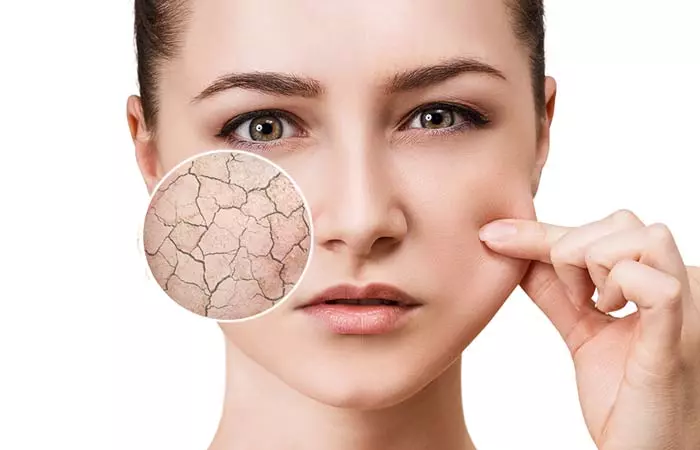
It is crucial to learn the basic differences between dry and dehydrated skin. Both cause similar symptoms, such as peeling, flakiness, and discomfort. But the following infographic will give you an idea about the key differences.
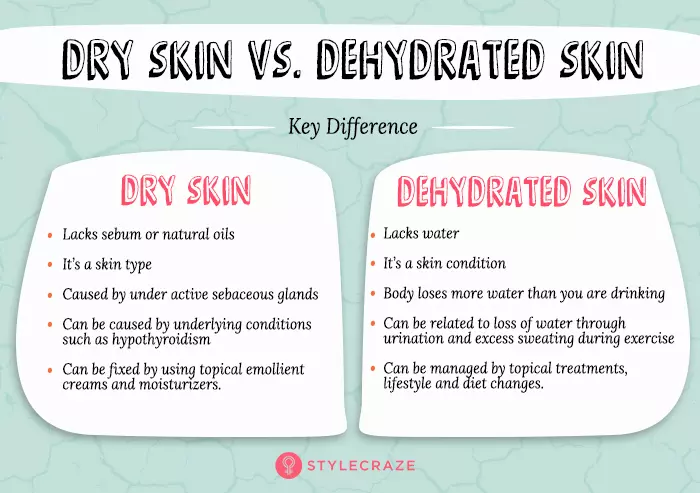
Looking at the specific signs and symptoms of dehydrated skin can give you more perspective on this. But before we get there, it is important to understand what else can cause skin dehydration. Continue reading.
Other Causes Of Dehydrated Skin
- Air conditioning or central heating reduce indoor humidity levels and lead to skin moisture loss and excessive dryness.
- Prolonged sun exposure accelerates evaporation of skin moisture, causing dehydration and compromising the skin barrier.
- Harsh skin care products disrupt the skin’s natural protective oils and further aggravate the skin by causing dryness.
- Regular hot showers may strip the skin of its natural oils and compromise the skin’s protective lipid barrier. This leads to moisture loss and dehydration.
- Certain medications with dehydrating side effects can impact the body’s overall hydration levels and cause skin dryness and dehydration.
- A diet low in fatty acids can lead to dehydrated skin, as essential fats help maintain moisture levels and support skin barrier function.
As we saw, dehydrated skin is different from dry skin. Check out the signs and symptoms of dehydrated skin to understand this better.
Signs And Symptoms Of Dehydrated Skin
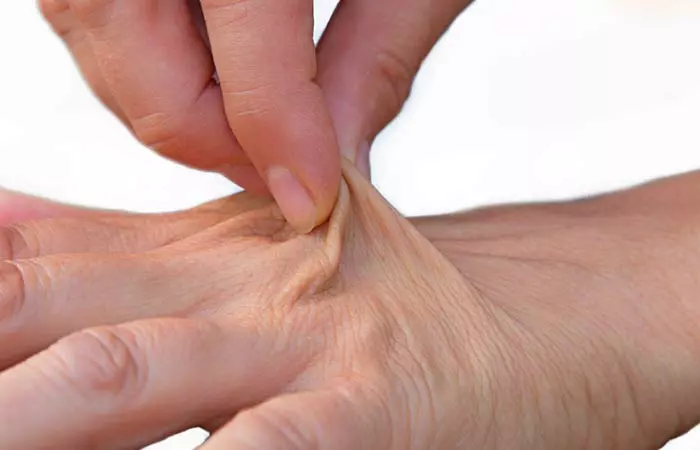
While dry skin can be flaky, itchy, and extremely uncomfortable, the signs and symptoms of dehydrated skin can be a little different. You may experience the following symptoms if you have dehydrated skin:
- Dullness
- Itchy skin
- Sunken eyes
- Dark circles
- Pronounced fine lines, expression lines, and wrinkles
- Redness
- Inflammation
- Tightness
- Skin sensitivity
- Scaly and rough texture
Severe dehydration may also cause:
- Dry mouth
- Dizziness
- Lightheadedness
- Less frequent urination or dark yellow urine
- Weakness
Apart from these, you are dehydrated if you also show the following symptoms:
- Bad breath
- Less saliva
- Constipation (dehydration worsens it)
- Tendency to faint
- Mood issues (depression and anxiety) (1)
If this is the case, you should visit your doctor immediately. Dehydration can become a serious health issue if ignored.
If you do not know whether your skin is dry or dehydrated, there’s a simple way to determine it.
How To Determine If You Have Dehydrated Skin
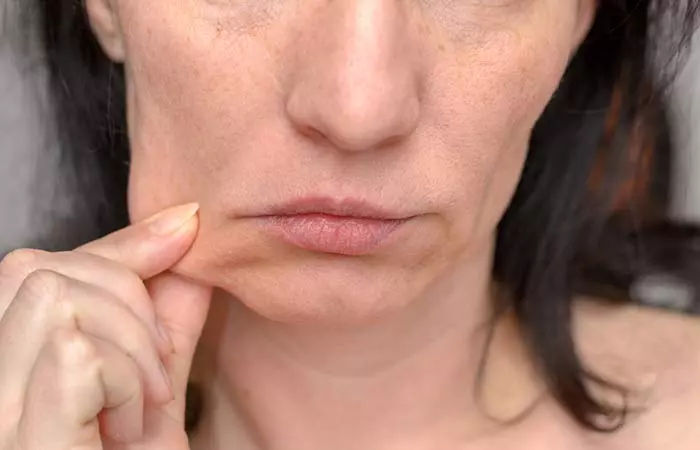
You can find out whether your skin is dehydrated or not with a simple test (called the pinch test). Here’s how you need to do it:
- Pinch a small portion of the skin on your cheek.
- You may notice a few wrinkles. If it does not bounce back when you let it go, your skin is dehydrated.
There’s yet another simple test you can do to find out if you are dehydrated. Usually, when you press your nail bed, it turns white, and when you release the pressure, the blood rushes back. If you are dehydrated, your nail bed takes longer to become pink or reddish again. To do this test:
- Hold the hand (on which you will perform the test) right above your chest.
- Using your other hand, pinch the nail bed until it turns completely white.
- Release the pressure.
- See how many seconds it takes to normalize (or turn pink again).
If you just realized that you are dehydrated, and your skin lacks the normal moisture levels, don’t panic. You can improve your dehydrated skin and make it glow again. How? Scroll down.
Taking Care Of Dehydrated Skin
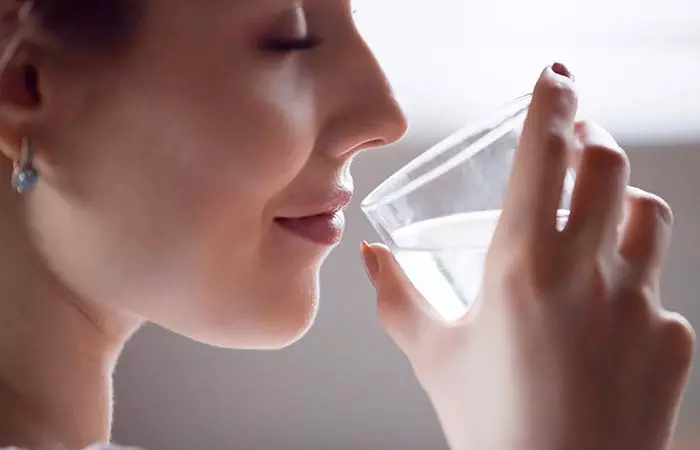
Once you have determined that your skin is dehydrated and not dry, you can take the following steps to replenish its hydration levels:
- Drink plenty of water. If you are wondering how to hydrate your skin naturally, drinking water and juices is the easiest solution. Talk to your doctor to determine how much amount is appropriate for you (as per your activity levels and body weight). However, avoid drinking too much water, as it may cause loss of essential minerals from your body.
- Cut down on caffeine consumption.
- Quit smoking.
- Reduce (or quit) alcohol consumption.
- Exercise regularly and sip water while you workout.
- Eat more vegetables, fruits, legumes, and plant-based foods.
Apart from these lifestyle changes, follow these skin care tips to take care of your dehydrated skin.
Exfoliate Regularly
Dead skin cells, when accumulated, affect the rate at which your skin absorbs moisture. You need to exfoliate your skin at least twice a week to avoid the build-up of dead skin cells.
We love microdermabrasionsi A process that gently smooths your skin and clears the thicker, irregular outer layer to treat scarring, discoloration, and sun damage. , such as Dermalinfusion or Hydrafacials, which gently exfoliate the skin while infusing serums in it.
However, it’s important to know that exfoliation may not suit everyone’s skin type. Lena H, a blogger, noticed her skin was dehydrated after she overused treatments to treat hormonal acne. She fixed her dehydrated skin by removing exfoliation from her skin care routine. She said, “You cannot fix dehydration if exfoliation is still on the table. I even stopped using a konjac sponge. I essentially left my face alone, moisturizing and cleansing only for a month… Exfoliating, even “gently” while you’re in the active process of rebuilding the “wall” of your moisture barrier is not only tricky to navigate, it’s quite simply counterproductive (i).”
 Quick Tip
Quick TipUse A Hydrating Serum
Before you put moisturizer on your skin, apply a serum. Get a serum with hyaluronic acid. Your skin naturally produces this acid, and replenishing it with serum is key to reducing dehydration and strengthening your skin barrier. Dr.V’s Needle-Free serum is perfect for this.
 Quick Tip
Quick TipApply A Heavy Night Moisturizer
A heavy, oil-free, and non-comedogenici A product that allows your skin to breathe and retain moisture without causing comedones (pore blockages) or breakouts. moisturizing night cream prevents moisture loss.. It will keep your skin moisturized and repair it while you sleep.
Using the wrong products can worsen your dehydrated skin. Hence, ensure you pick the right product for your skin. Here’s a guide you can follow.
Choosing The Right Skin Care Product For Dehydrated Skin: A Few Tips

When picking up skincare products, be mindful of the ingredients. Certain ingredients may cause skin imbalance and worsen your condition. Here are a few pointers:
- Avoid products with skin-aggravating ingredients such as peppermint, alcohol, menthol, and fragrances. These can dry out your skin further.
- Avoid using abrasive scrubs and cleansing brushes on your skin. These can damage the skin surface.
- Avoid using wrong combinations of products. Although ingredients like vitamin C, AHA and BHAi An oil-soluble organic compound that can penetrate deep into the pores to eliminate excess sebum and dead skin cells. exfoliants, and retinoli A type of retinoid, which is derived from vitamin A and possesses anti-aging, acne-clearing, and skin-rejuvenating properties. are excellent for your skin, using these products every day can make your skin look more dehydrated. Use them moderately.
- Use serums and moisturizers that contain antioxidants.
- Always use mild cleansers on your face (preferably soap-free).
Underactive sebaceous glands affect the moisture balance of the skin, causing dryness and symptoms of dehydration. However, managing dehydrated or flaky skin and improving its symptoms is not impossible. You can do that after making a few changes in your lifestyle and following a proper skin care routine. Follow the tips discussed in the article, drink plenty of water, and eat nutritious food, and we are sure you will see your skin improve. However, if the symptoms persist even after taking proper care, consult a dermatologist to determine the underlying causes and follow the prescribed treatment.
Frequently Asked Questions
Do weather conditions influence dehydrated skin?
Yes, weather conditions like cold, dry air and excessive heat can worsen dehydrated skin by stripping more moisture and damaging the skin barrier.
Is coconut oil good for dehydrated skin?
Yes, coconut oil is an excellent moisturizer that can hydrate the skin and prevent flaking (2).
Is Vaseline good for dehydrated skin?
Yes, petroleum jelly helps create a barrier that locks the moisture in, keeping your skin moisturized and smooth (3).
What liquids hydrate skin?
Some liquids you can incorporate into your daily routine to treat dehydrated skin are coconut water, cucumber juice, green tea, aloe vera juice, and lemon water.
Does aloe vera hydrate skin?
Yes, aloe vera is a natural humectant that can help retain moisture and hydrate your skin.
How long does it take to fix dehydrated skin?
If you religiously follow the above-mentioned tips you can expect visible improvement in skin in 3 to 4 weeks.
Can dehydrated skin cause premature aging?
Yes, dehydrated skin may weaken the skin barrier, thereby causing sensitivity, redness, inflammation, loss of elasticity, and signs of premature aging.
What ingredients should I look for in skincare products for dehydrated skin?
It is best to look for hydrating ingredients like hyaluronic acid, aloe vera extract, vitamin E, and glycerin.
Can dehydrated skin cause acne?
Yes, dehydrated skin may lead to congestion and blocked pores, thereby causing acne.
Say goodbye to dry skin with this helpful video! Learn about the causes of and solutions to treat dry skin so you can get back to looking your best. Check it out!
Personal Experience: Source
StyleCraze's articles are interwoven with authentic personal narratives that provide depth and resonance to our content. Below are the sources of the personal accounts referenced in this article.
i. How I Fixed My Dehydrated Skinhttps://faceonomics.blogspot.com/2017/02/how-i-fixed-my-dehydrated-skin.html
References
Articles on StyleCraze are backed by verified information from peer-reviewed and academic research papers, reputed organizations, research institutions, and medical associations to ensure accuracy and relevance. Read our editorial policy to learn more.
- “Mild dehydration impairs…“, British Journal of Nutrition, Cambridge University Press
- “Medicinal benefit of …”, ResearchGate
- “A comparative histological study..”, Research in Pharmaceutical Sciences, ResearchGate
Read full bio of Dr. Vindhya L Veerula
Read full bio of Ramona Sinha
Read full bio of Eshna Das
Read full bio of Shiboli Chakraborti







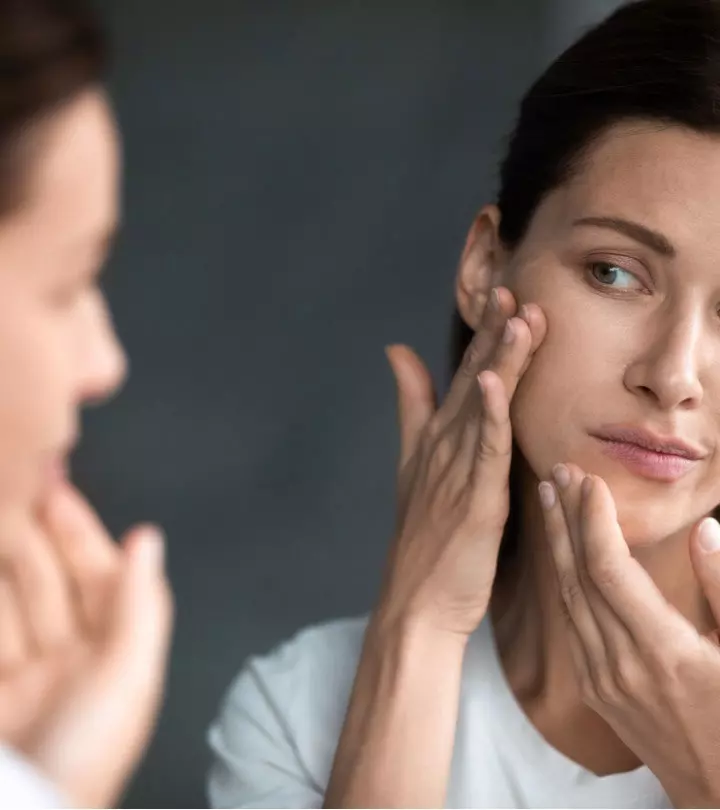
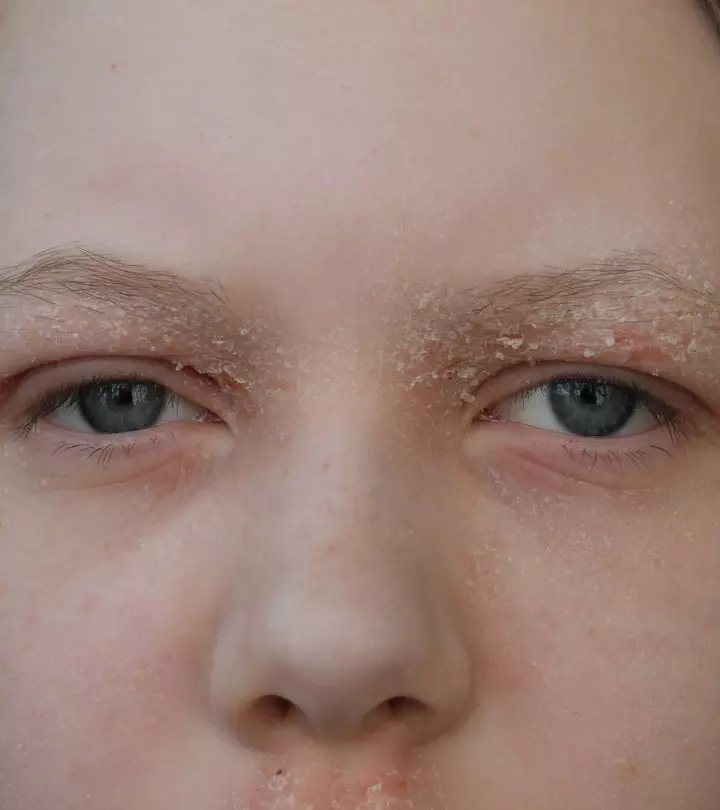
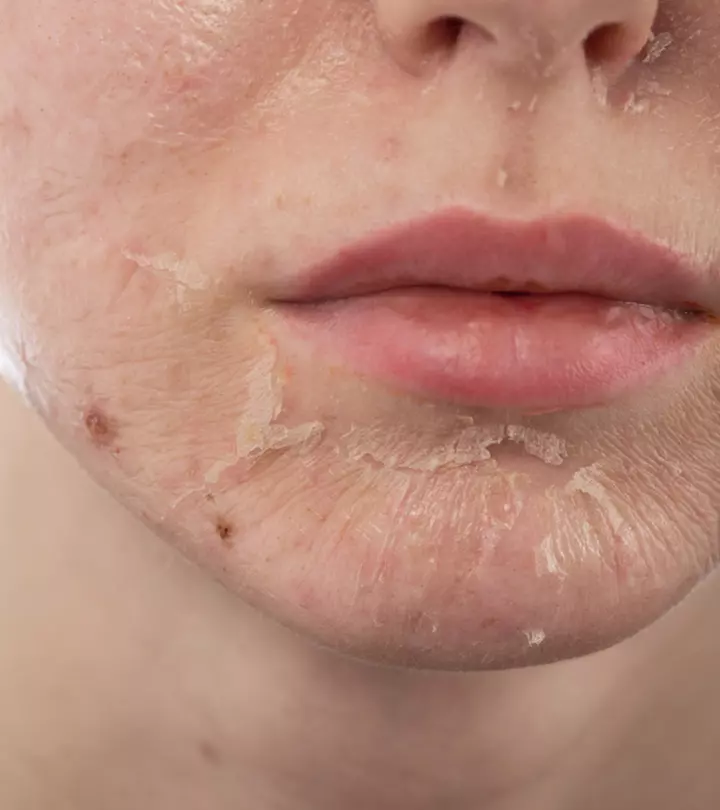


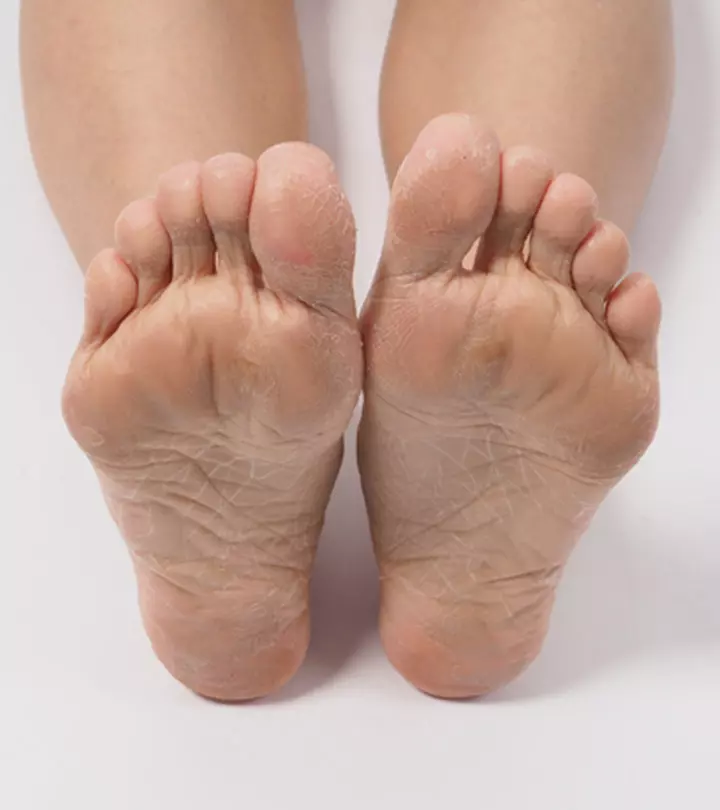
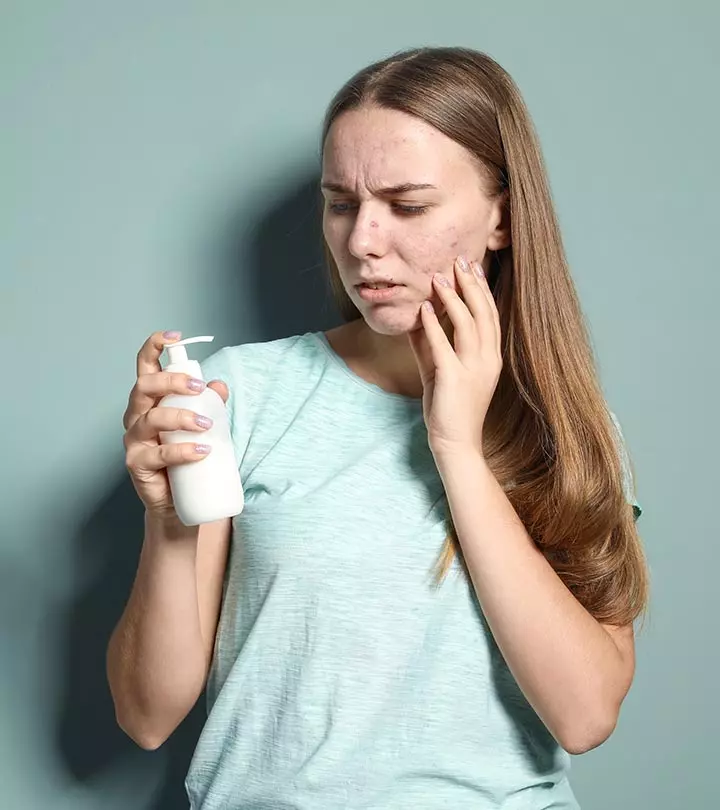
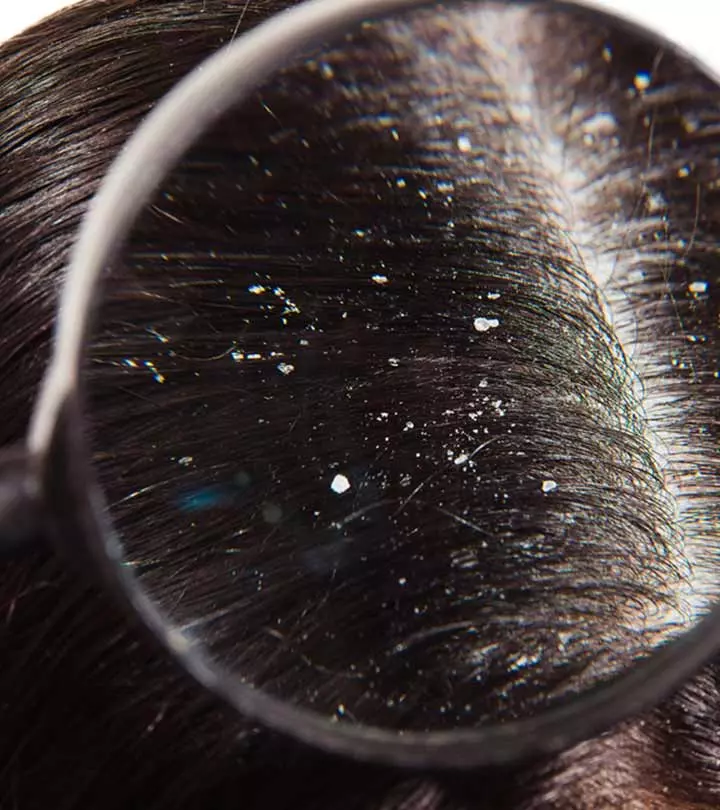

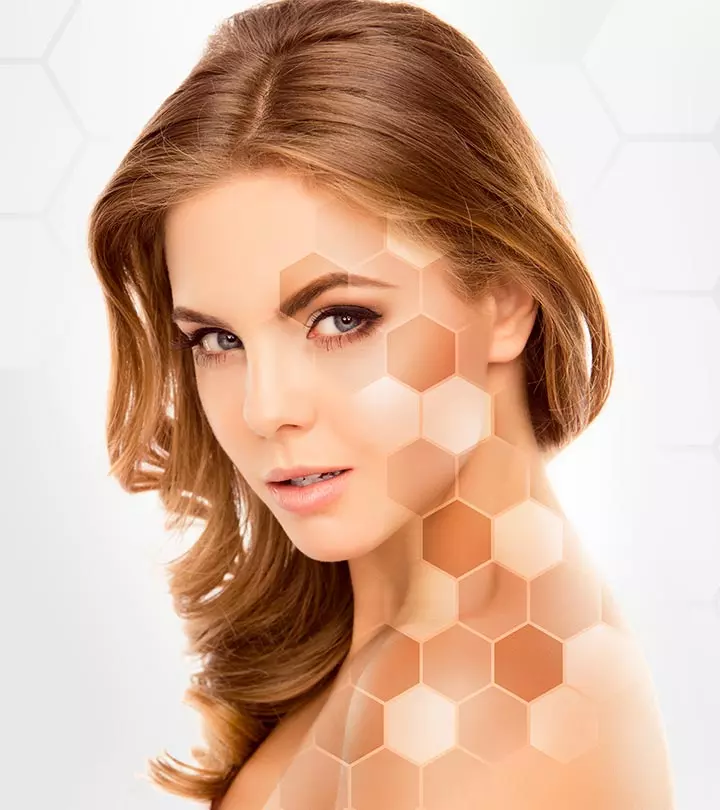

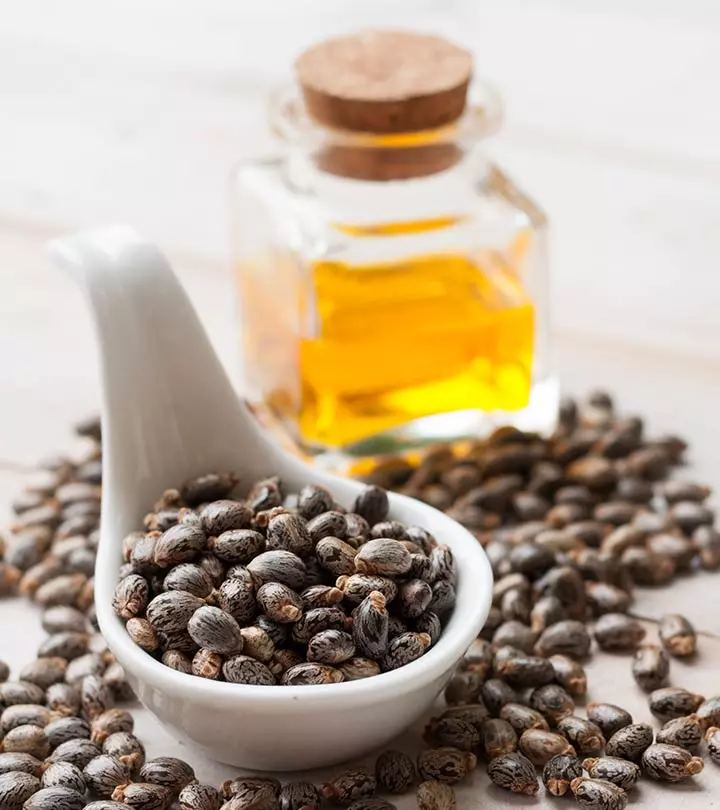
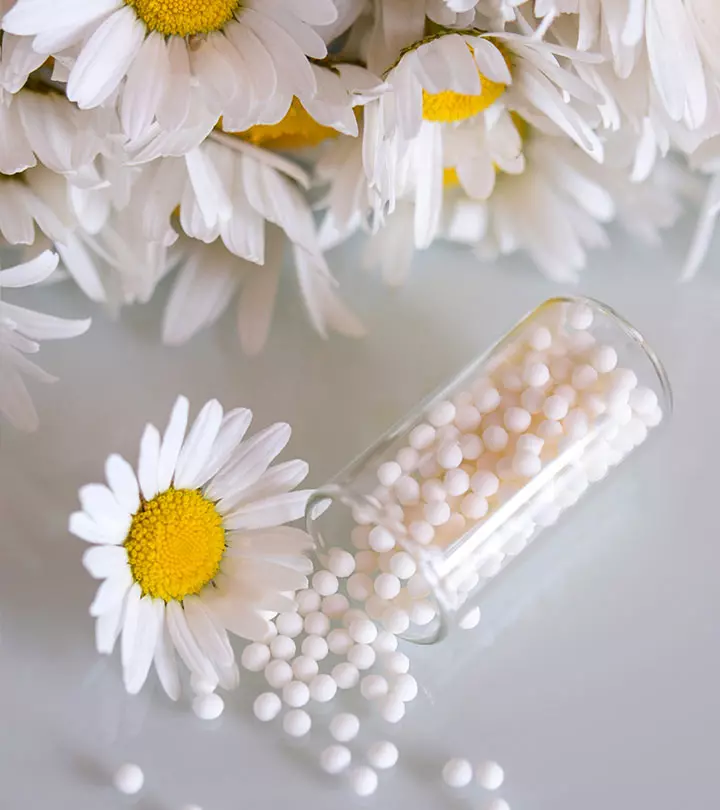
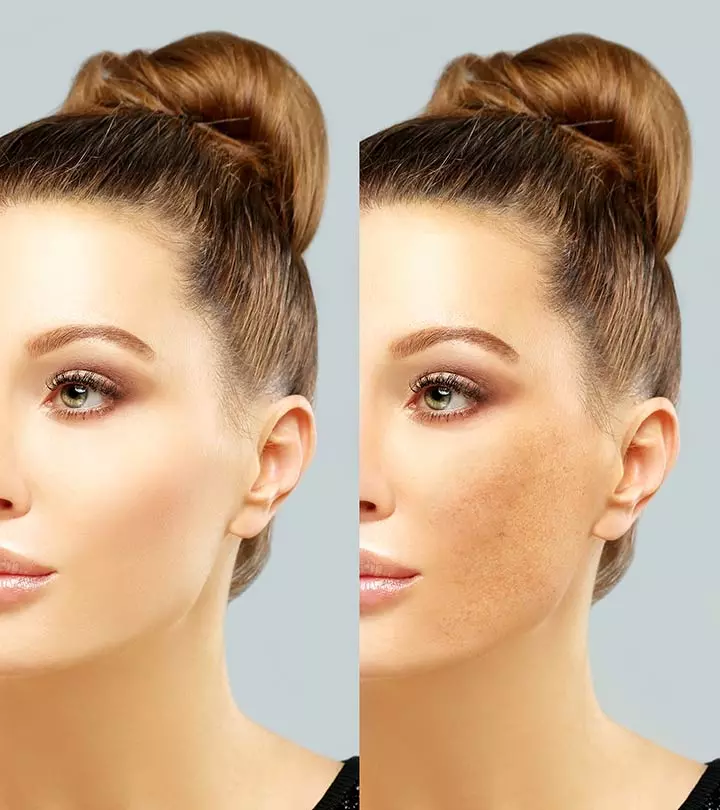
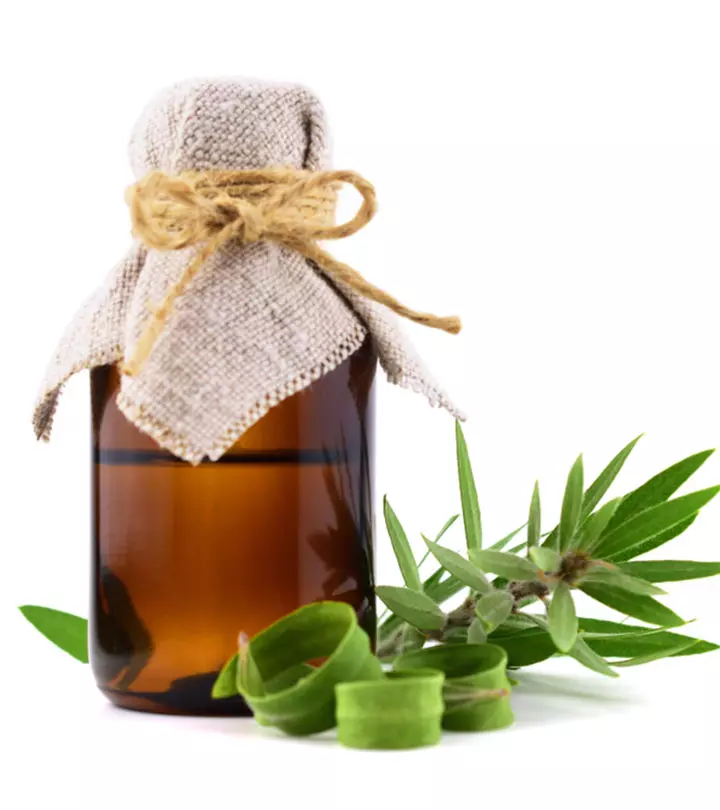

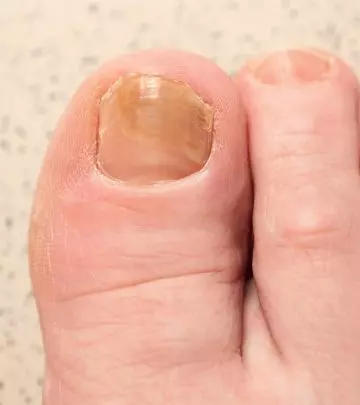

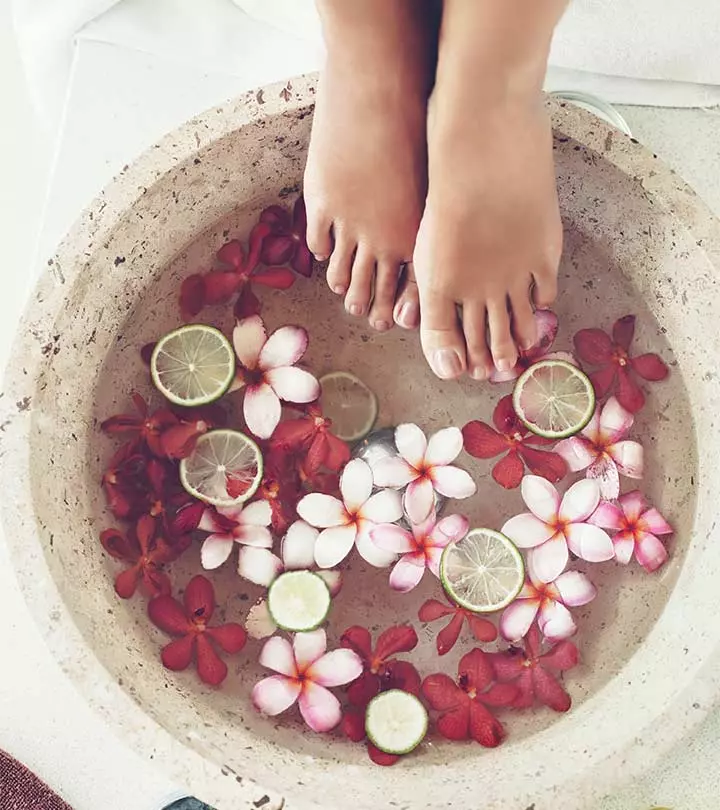
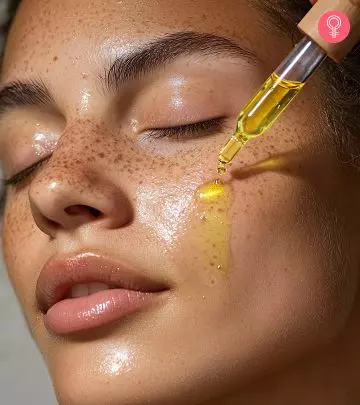

Community Experiences
Join the conversation and become a part of our empowering community! Share your stories, experiences, and insights to connect with other beauty, lifestyle, and health enthusiasts.